Search
Remove Ads
Advertisement
Summary 
Loading AI-generated summary based on World History Encyclopedia articles ...
Search Results
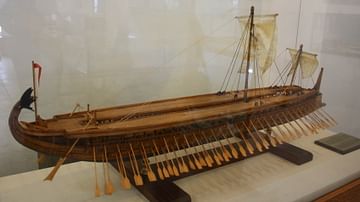
Definition
Trireme
The trireme (Greek: triērēs) was the devastating warship of the ancient Mediterranean with three banks of oars. Fast, manoeuvrable, and with a bronze-sheathed ram on the prow to sink an enemy ship, the trireme permitted Athens to build its...
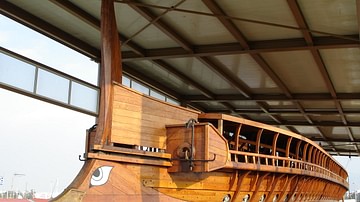
Image
Trireme Hull with Bronze Ram
The hull of the Olympias, a full-scale reconstruction of an ancient Greek trireme warship. The principal strategy in battle of the trireme was to sink or damage the oars of an enemy vessel using the bronze ram fixed to the ship's prow. Triremes...
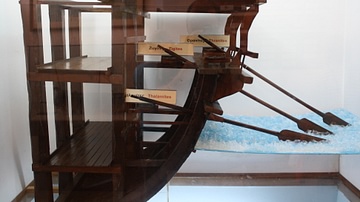
Image
Trireme Cross Section
A model showing a cross section of an ancient Greek trireme. (Archaeological Museum, Hania, Crete)
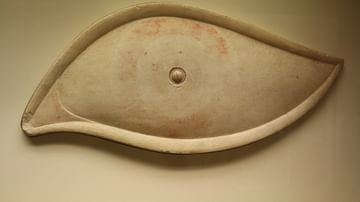
Image
Trireme Eye
A marble eye which was once attached to the prow of a trireme in order to ward off evil. Traces of the original paint can still be seen. (Archaeological Museum of Piraeus)
![Greek Trireme [Artist's Impression]](https://www.worldhistory.org/img/c/p/360x202/4650.jpg?v=1740247384)
Image
Greek Trireme [Artist's Impression]
An artist's rendition of a Greek trireme in battle.
![Greek Trireme [Illustration]](https://www.worldhistory.org/img/c/p/360x202/154.jpg?v=1739953088)
Image
Greek Trireme [Illustration]
Model of a Greek Trireme.
Displayed at Deutsches Museum, Munich, Germany.
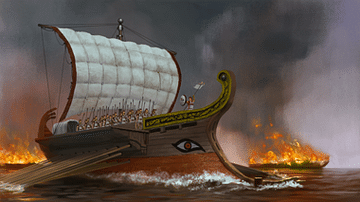
Image
Greek Trireme in Battle
An artist's impression of what a Greek trireme warship may have looked like.

Image
Greek Trireme Model
A model of a trireme from ancient Greece. (Archaeological Museum, Hania, Crete)
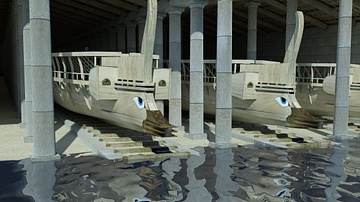
Image
Greek Trireme Shipsheds
3D reconstruction of the shipsheds for the Athenian navy at Zea Harbour. Republished with permission from the Zea Harbour Project.

Definition
Roman Naval Warfare
Military supremacy of the seas could be a crucial factor in the success of any land campaign, and the Romans well knew that a powerful naval fleet could supply troops and equipment to where they were most needed in as short a time as possible...